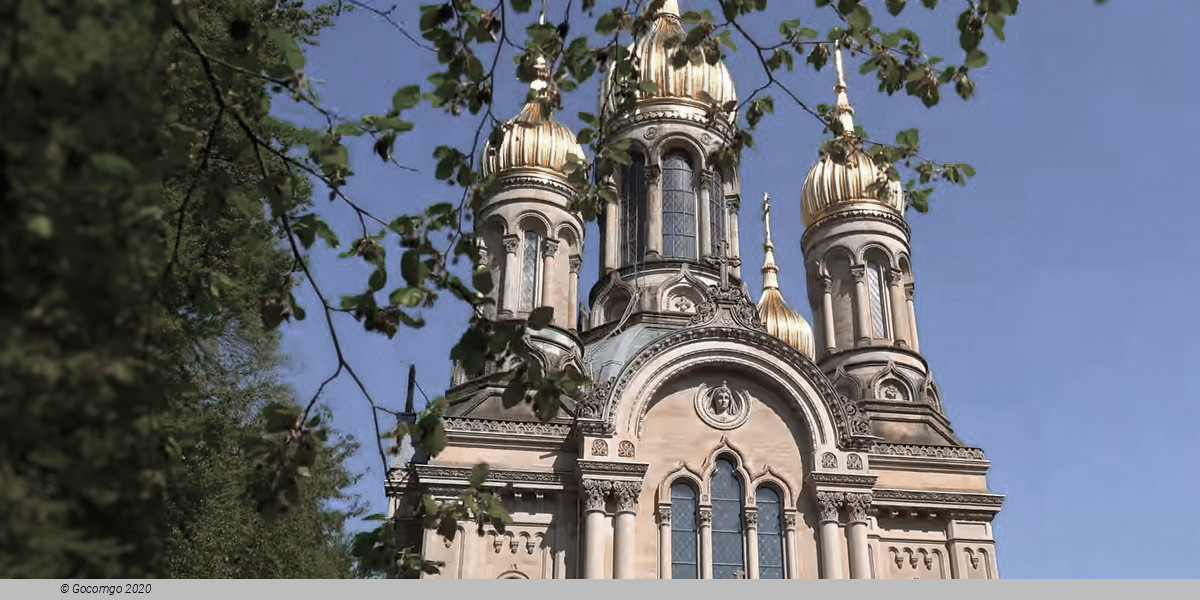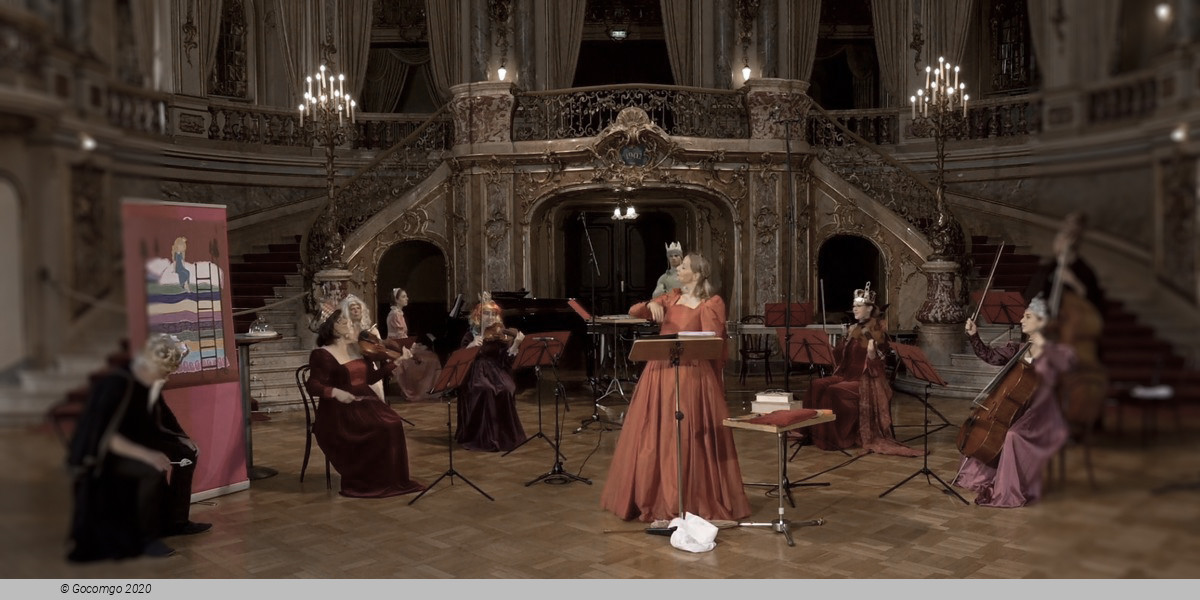Venues in Wiesbaden

Wiesbaden is a city in central western Germany and the capital of the state of Hesse. Wiesbaden is one of the oldest spa towns in Europe. Its name translates to "meadow baths", a reference to its famed hot springs. It is also internationally famous for its architecture and climate—it is also called the "Nice of the North" in reference to the city in France. At one time, Wiesbaden had 26 hot springs. As of 2008, fourteen of the springs are still flowing.
Wiesbaden's most important stage is the Hessisches Staatstheater Wiesbaden. Concert halls include the Friedrich-von-Thiersch-Saal of the Kurhaus. Wiesbaden has a State Library and a conservatory, where Max Reger studied and taught as a young man. Choirs such as the Wiesbadener Knabenchor, Schiersteiner Kantorei and Chor von St. Bonifatius are known in the region and even internationally.
International May Festival
The International May Festival is an annual arts festival presented by the Hessisches Staatstheater Wiesbaden every May. Established in 1896, it is one of the most distinguished international theatre and music festivals in the world. The festival features performances of plays, musicals, operas, and ballets. Concerts from a wide array of music are featured, as are artistic circus acts and modern dance presentations. Lectures, recitals, cabaret performances, and readings are also featured.
Rheingau Wine Festival
The wines and sparkling wines of the close Rheingau are presented annually at the ten-day festival in August, Rheingauer Weinwoche (Rheingau Wine Week) around the Wiesbaden City Hall, on the Schlossplatz (Palace Square), the square Dern’sches Gelände and in the pedestrian area. At 118 booths, Rheingau and Wiesbaden vintners offer their wine and sparkling wine and invite to discover the already well known and favored, but also new vintages. Every year thousands of visitors use this opportunity to get acquainted with Rheingau Riesling wines and all their various facets and flavors. Regional specialities compatible with the wines are offered as well. A diversified musical program entertains the wine festival guests. Initiated more than 30 years ago by the Rheingau vintners, this wine festival has a long tradition.
Shooting Star Market
Wiesbaden's Sternschnuppenmarkt is located at the central Schlossplatz and the neighbouring streets of the parliamentary building, old town hall, and market church. The Sternschnuppenmarkt takes place from the end of November until December 23 every year and is open from Monday until Thursday 10:30 – 9:00 pm, Friday and Saturday 10:30 – 9:30 pm, and Sunday 12:00 – 9:00 pm.
The market is related to the city arms of Wiesbaden: the colours blue and gold and the three lilies are characteristic. Four gates and an illuminated floral roof symbolizing Fleur-de-lis, consisting of twelve over ten metre high and twelve metre wide luminous lilies, emboss the Sternschnuppenmarkt.
Over 110 booths are decorated in oriental style, coloured blue and gold, offering Christmas style goods, arts and crafts as well as nostalgic carousels and a toy train. A Christmas tree more than 28 metres (92 feet) tall is decorated with 1000 blue and golden ties, 2500 electric bulbs and 30 flash bulbs. The nativity scene displays life-sized wooden figures.
Rheingau Musik Festival
From the beginning in 1988 the Rheingau Musik Festival has staged summer concerts in the Marktkirche and in the concert hall of the Kurhaus now named Friedrich-von-Thiersch-Saal.


